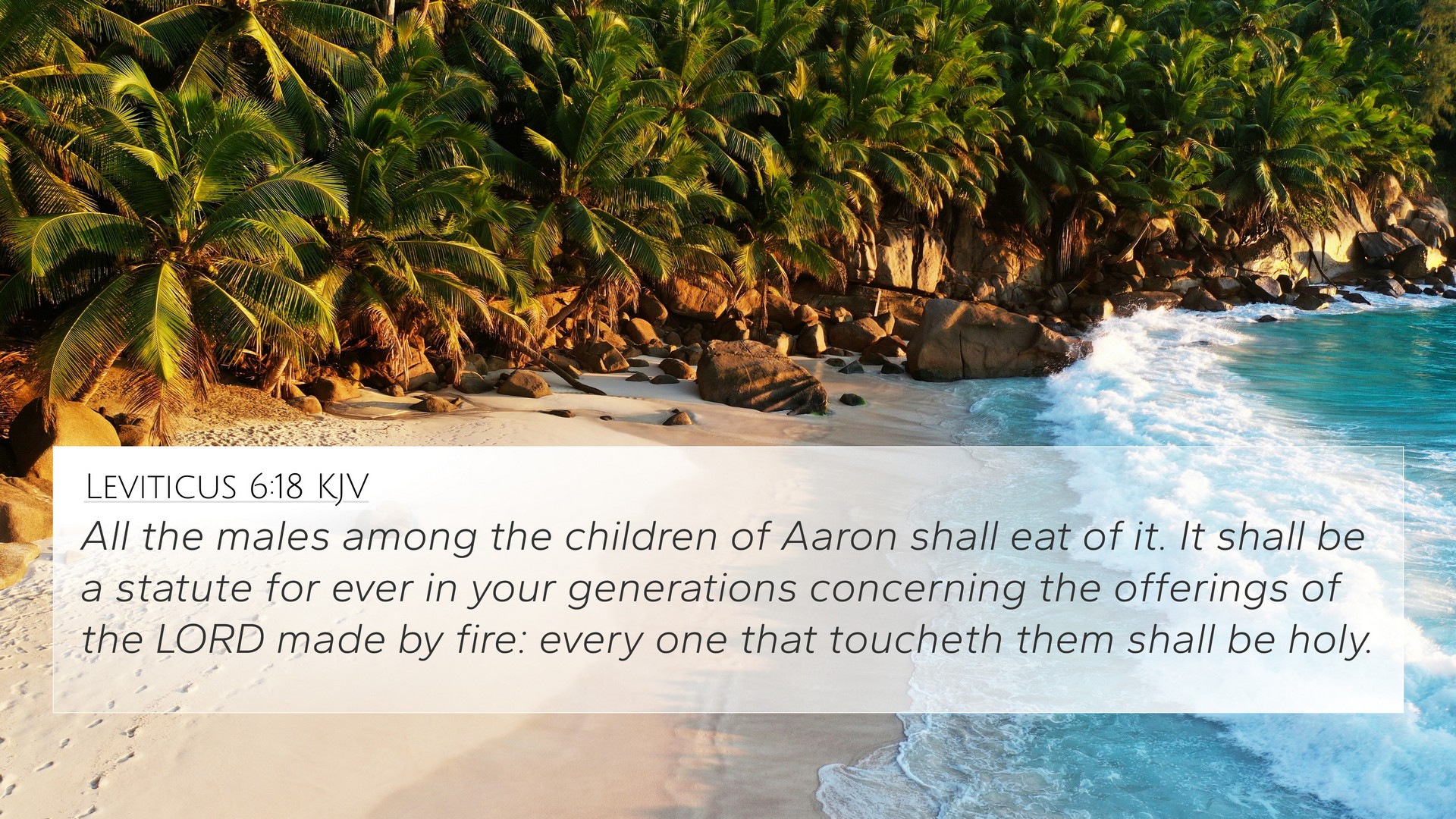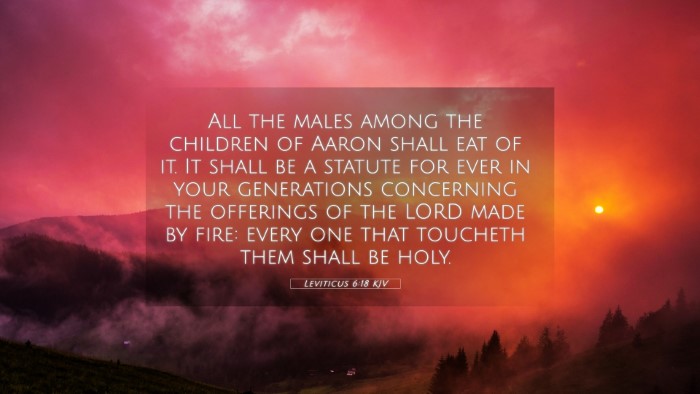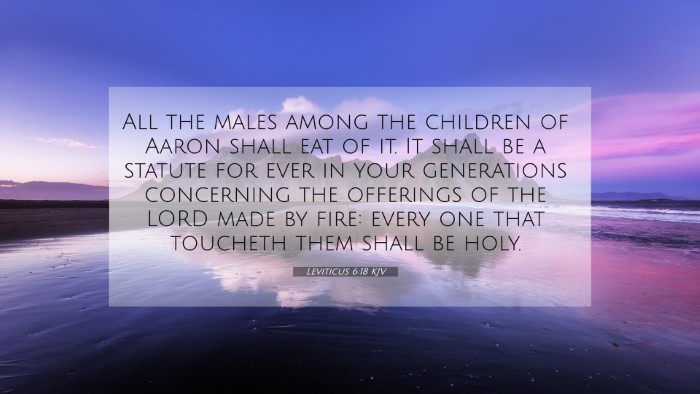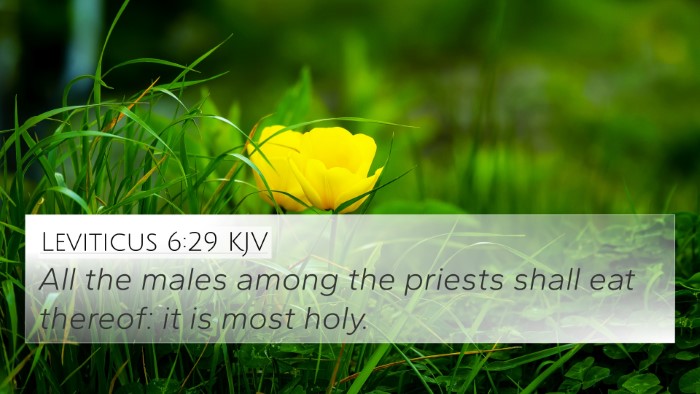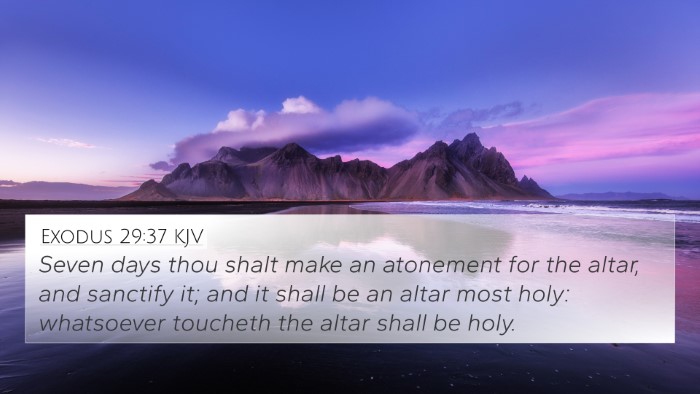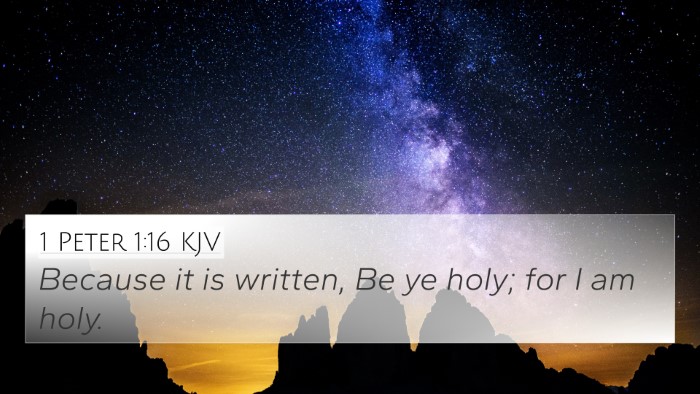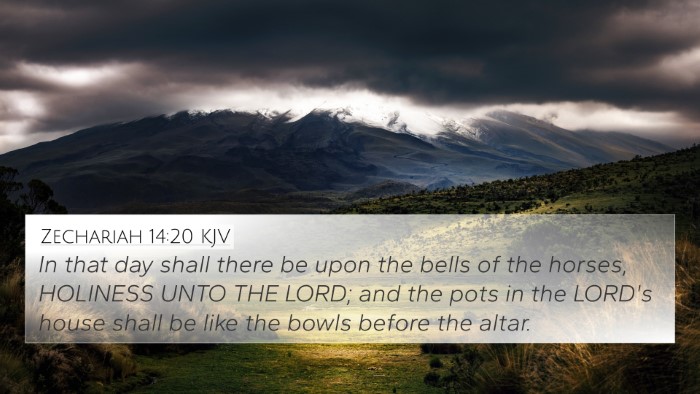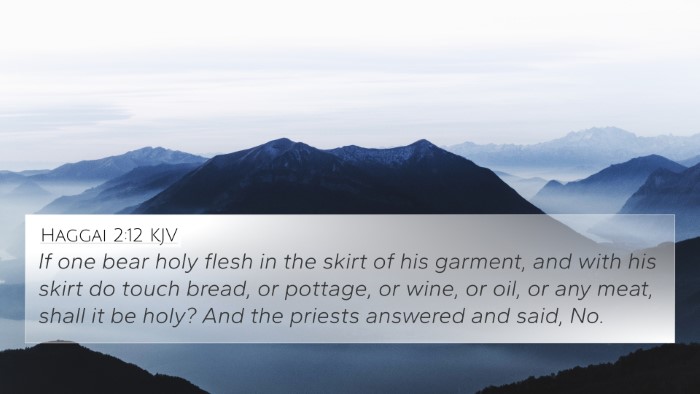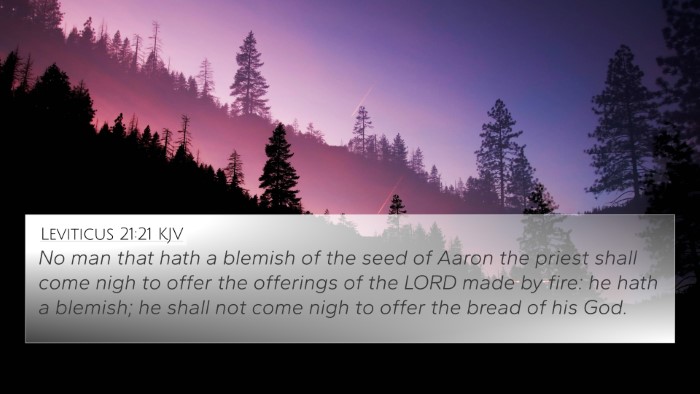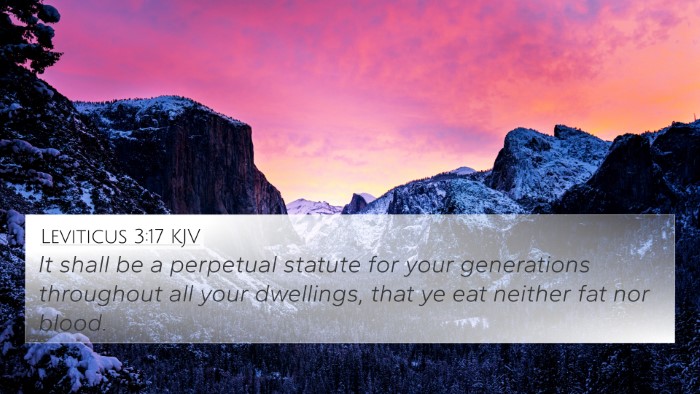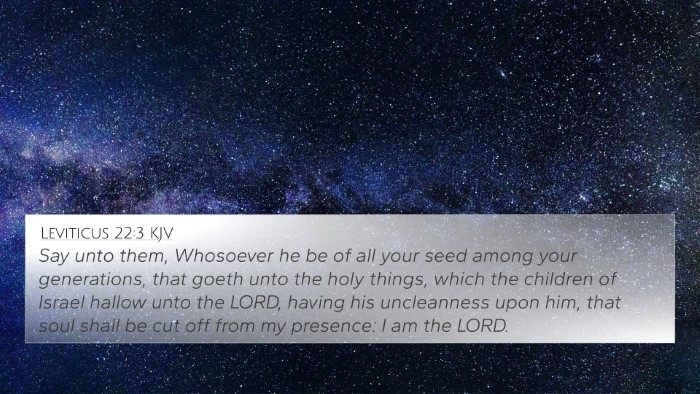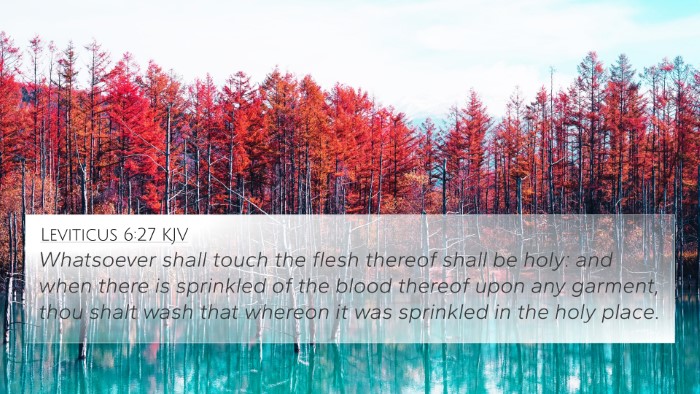Understanding Leviticus 6:18
Leviticus 6:18 states: "All the males among the children of Aaron shall eat of it. It shall be a statute forever in your generations concerning the offerings of the Lord made by fire. Everyone who touches them must be holy." This verse is pivotal within the context of Old Testament sacrificial laws and emphasizes the holiness required in the service of God.
Key Themes and Interpretations
This verse can be interpreted through a lens of spiritual significance as outlined by several public domain commentaries:
-
Matthew Henry's Commentary:
Henry emphasizes the importance of participation in offerings, highlighting that the priests' eating of the offerings is not only a privilege but also a responsibility that signifies their relationship with God and their role in the community. He notes the lasting nature of this statute, portraying it as a continual reminder of God's covenant with His people.
-
Albert Barnes' Notes:
Barnes discusses the regulation surrounding the offerings, particularly stressing that only males among Aaron’s descendants were permitted to partake. This restriction signifies the organized structure of God’s priesthood, which draws parallels to the orderly conduct within public worship and service to God. He also underlines the necessity of holiness for all involved in sacred duties.
-
Adam Clarke's Commentary:
Clarke elaborates on the idea that those who engage with offerings must approach with holiness. He interprets this as a foreshadowing of the New Testament's call for all believers to be a "kingdom of priests" (Revelation 1:6), signifying a broader access to God through Christ, who fulfills the law.
Connections to Other Scriptures
In examining Leviticus 6:18, several cross-references illustrate its significance in the narrative of the Bible:
- Exodus 28:1: God appoints Aaron and his sons as priests, establishing the foundation for the sacrificial system.
- Numbers 18:9: Priests receive certain offerings as their due, confirming the provisions made for them in worship.
- Deuteronomy 10:8-9: Highlights the special role of the Levites, reaffirming their set-apart status in the worship of God.
- 1 Peter 2:9: Echoes the call for believers to be a royal priesthood, connecting Old Testament practices to New Testament spirituality.
- Hebrews 7:14: Refers to the change in priesthood from Levi to Christ, showing the transformation in the understanding of holiness and access to God.
- Revelation 5:10: Portrays the believers' role as a kingdom of priests, establishing a direct connection between the sacrificial practices and the priesthood of all believers today.
- Malachi 2:7: Discusses the duty of priests to uphold the knowledge of God, illustrating the enduring responsibility of those in ministerial roles.
Thematic Connections
Leviticus 6:18 serves as a reminder of the essential themes found throughout Scripture:
- Holiness: A recurring theme from the Old Testament to the New, calling God's people to live in purity and set apart for His service.
- Sacrifice: The need for offerings to atone for sin is foundational to both the Jewish faith and the understanding of Christ’s ultimate sacrifice.
- Covenant Relationship: The statute speaks to God's relationship with Israel, which parallels the New Covenant relationship believers have with Christ.
Conclusion
Leviticus 6:18 provides a framework for understanding the responsibilities of the priesthood in the Old Testament and how these responsibilities are fulfilled through Christ in the New Testament. The study of this verse offers a profound opportunity to explore the links between the Testaments and the consistent theme of holiness throughout Scripture.
FAQs on Cross-Referencing Bible Verses
- What are Bible verse cross-references? They are verses that connect thematically or contextually, providing deeper understanding by seeing how Scripture interrelates.
- How do I find cross-references in the Bible? Bible concordances, study Bibles, and various online resources can assist in identifying connections between verses.
- What tools are available for Bible cross-referencing? Bible concordance and cross-reference guides can be invaluable for detailed Bible study.
Further Study Methods
For those interested in exploring Bible verse connections deeper, several methods can enrich your study:
- Cross-reference Bible study: This method allows you to see correlations between verses, enhancing your understanding of Biblical themes.
- Bible chain references: Living resources that reveal how verses lead to one another, creating a thematic flow in scripture.
- Comparative study of Pauline epistles: An analysis of Paul’s letters might reveal inter-Biblical patterns and recurring themes across the New Testament.
